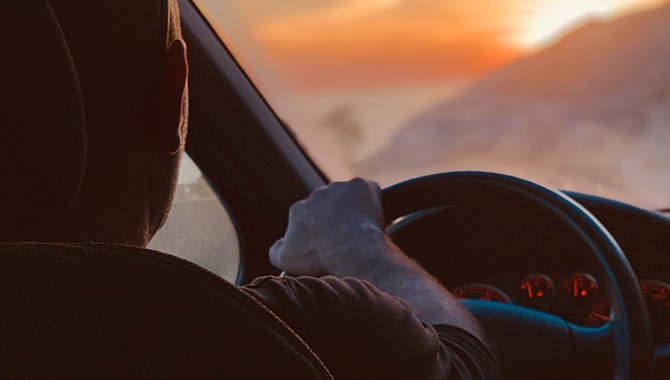Who ever becomes humble like this child is the greatest in the kingdom of heaven. –Matthew 18:4
Healthy religion is always humble about its own holiness and knowledge. It knows that it does not know. –Father Richard Rohr
Ro and I had been hiking above tree line for a couple of days, playing cat and mouse with the afternoon thunderstorms. So far, we were lucky. The Colorado Trail led us across vast stretches of high alpine tundra laced with wildflowers: forget me nots, chickweed, bright orange paintbrush, and so many more that I cannot name, a buffet of brilliant color where the hues of the alpine meadows and the sky seemed to melt into one.
We dropped off Snow Mesa to Spring Creek Pass where Colorado Highway 149 intersects the trail and takes weary hikers into Lake City for those who want a hot, full meal and a dry bed. Not many people drive on this lonesome road, so I was hoping we wouldn’t have to wait too long to catch a ride into town.
As I approached the road, I saw Ro with an old white man who was leaning against the bed of his shiny red F-150 truck with Texas license plates. “You and your son need a lift?” “We sure do.” “Throw your packs in back and hop in.” “Thank you so much.”
I sat in the front and Ro sat in the back. The man muted his radio tuned into a popular talk radio show. Let’s just say it was not National Public Radio. Between the truck, the Texas plates, the radio station, his Southern drawl, and his ethnicity, I knew that I knew all I needed to know about this guy. After all, I grew up in Texas.
I thought to myself, “He is giving me and Ro a ride. So just be quiet, nod your head, and don’t say anything to create a stir.” “Where you from in Texas?” I asked. “Oh, near Denton.” “Really, I grew up in Collin County in Wylie.” “Yes sir, I know Wylie.” “You ever have all you can eat fried catfish on Friday night in Princeton?” “No, but I sure like catfish,” the older man said. “Don’t eat it much up here. My wife and I are retired now. We summer up here.”
“What did you do before you retired?” “I flew Huey helicopters during the Vietnam War. I helped write the manual on how to fly’m.” “Here we go,” I thought. “Be careful about what I say.”
“I guess you probably landed in a lot of hot zones (places with enemy fire).” “Yes, I did.” He got quiet. “I lost a lot of good friends over there. I was one of the few who came back.” He got quiet again and shifted down to a lower gear in his truck as we drove down the steep mountain pass. I did not know what to say. Bill broke the silence, “That war was probably the biggest mistake our country ever made.” “Yeah, it was complex,” I said. We rode on in reverent silence.
“What do you do?” Bill asked. “Oh, I’m a United Methodist minister in a little town in Colorado. “Really,” Bill smiled. “I was a Southern Baptist minister in a small town in West Texas!” He punched me playfully on the shoulder and said, “We’re brothers!” “Oh gosh, here we go,” I thought. “I do not want to talk theology with a small-town Baptist minister from West Texas.”
“You know there were two churches in the town where I preached. The Catholic church and the Southern Baptist church. That’s it. I had to decide early on if I was going to be a Southern Baptist minister or a minister to the community. I became ecumenical. My colleagues weren’t too happy with me.” Bill laughed. “That’s good,” I said. “Our differences don’t bother God near as much as they bother us.” “That’s for sure,” Bill laughed again.
Bill was not fitting nicely into the little box I placed him in. I assessed and judged him quickly based on his license plate, the radio station he was listening to, and his ethnicity. I could not have been more wrong. “We have to constantly remind ourselves that we don’t know,” says Rohr. Buddhists call this a beginner’s mind. Jesus simply says, “Be humble like children and you will enter the kingdom of heaven” (see Matthew 18:3,4).
“To be humble,” writes Roberta Bondi in To Love as God Loves is “to identify with other people, their beauty and their brokenness.” Our collective wholeness and our flaws. We see ourselves in them, not separate from them. We can say sincerely, “He/she today, me tomorrow,” or “but by the Grace of God, there go I.”
With humility, we move from judging someone or a group to having empathy and compassion. We move from seeing in part to seeing more fully, the other person and ourselves. “No one can judge another, for no one but God knows why or how people come to act as they do,” says Bondi. Jesus calls us to be humble and not to judge, and it is difficult. But the humility of Grace leads us into healthy relationships and healing.
Do we value arrogance and certainty, or do we honor humility and not knowing? Is it possible to love God and ourselves while judging others at the same time? Are we so quick to judge others that we fail to understand them?
May we clothe ourselves in humility (Colossians 3:12), refrain from judgment; and may we see God’s image in one another.
Blessings and peace,
Craig

